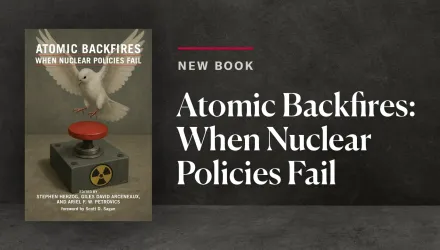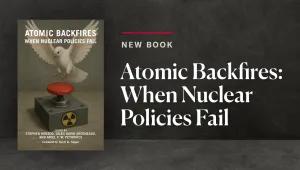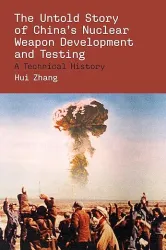This week’s 70th anniversary of the American nuclear bombing of Hiroshima and Nagasaki that killed 200,000 people coincided with intense debate in the United States Congress in particular about the recent agreement that prevents Iran from acquiring nuclear weapons (which Iran claims it has never sought). The matter of mass killings using weapons of mass destruction has preoccupied humankind for some time now, and it raises four related issues that deserve much more attention than they have received:
• accountability for crimes committed,
• intervention to protect civilians,
• deterrence to prevent possible future atrocities and crimes against humanity, and
• whether political agreements that end active wars should allow leaders who presided over mass atrocities to enjoy amnesties and not be held accountable legally or politically.
These issues matter more than ever in the Arab world because we seem to be the world’s most problematic arena for mass killings, refugee flows, and the use of violence by states and non-state groups that is rarely if ever subject to any accountability. While we remember this week the 200,000 Japanese who perished at the receiving end of American nuclear weapons, we are reminded regularly that well over 200,000 people have died in Syria in the past four years; over a million have died in Iraq since the 2003 Anglo-American invasion; estimates say that in Sudan over the past two decades at least 2.5 million people died in civil wars. Thousands have died in Palestine at the hands of the Israeli armed forces, against a much smaller number of Israelis killed by Palestinians. We now also witness thousands dying in the new war in Yemen, while in once rock-solid Egypt government forces and opposition militants routinely are killing each other by the dozen. Even Saudi Arabia now witnesses terror attacks that kill scores of civilians or military personnel at a time.
Perhaps so much death and destruction take place around the Arab world, at the hands of Arabs, Israelis, Americans and others, because no serious process exists that holds individuals or governments accountable for the atrocities they commit. The International Criminal Court’s indictment of Sudanese President Omar Hassan Bashir for war crimes a few years ago has never been followed up by a serious effort to bring him to court for a fair trial. This means that other Arab autocrats, the Israeli government, and many non-state killers go about their routine business that includes killing thousands of people, often their own citizens. The extent and nature of the mass killings in our region make it all the more imperative that such criminal action be dealt with in a serious court of law. Accusations against Arab, Israeli, American, British, Iranian or other governments of criminal actions usually seem to be well deserved, but only a legal indictment and a fair trial can prove the guilt or innocence of the accused.
The fact that no such actions occur means that active killers go about their criminal deeds with total impunity, which may explain why so many governments and non-state organizations kill at will across the region. The current increasing talk of moving towards a political process in Syria that ends the fighting rests heavily on a single issue: What will be the fate of President Bashar Assad and his family if a political agreement does end the fighting, and make way for a transition to a new government?
Will Assad be allowed to step down and retire quietly somewhere? Or should he be held accountable for most of the hundreds of thousands of Syrians who have died in the war there? Is there enough evidence of his use of chemical weapons and inhuman barrel bombs against civilians to indict him and his officers? Or is it preferable to allow him to retire in peace, for the sake of ending the fighting and sparing the lives of perhaps several hundred thousand other Syrians who are alive today?
While we debate this, we also face the related issue of whether and how regional and foreign powers should intervene inside Syria to slow down the mass routine killing of civilians by the Syrian air force. The international doctrine of the “responsibility to protect” was largely discredited by the heavy-handed manner in which NATO and Arab forces intervened in Libya four years ago to overthrow the Gaddafi regime and lead the country into its current chaotic and violent state.
The mostly Arab, Turkish, American intervention in Iraq and Syria to fight the Islamic State in Iraq and Syria (ISIS) is another example of how to react, but its outcomes remain unclear. These really tough issues cannot be ignored for long, because hundreds of thousands of people at a time are dying in assorted wars across the Arab world, mirroring the hundreds of thousands who died in Japan on two days 70 years ago.
Khouri, Rami. “Remembering Hiroshima, amidst hell in Syria.” Agence Global, August 7, 2015





